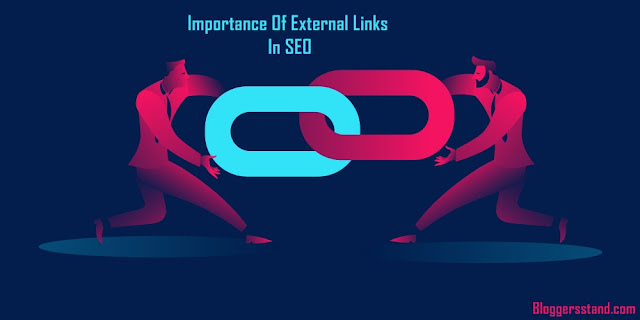
Why External Links Are So Important For SEO To Get In Top 10 Search Results On Google
It's no secret Google uses the number and quality of incoming links to help rank web pages in its search algorithm. In fact, this is a significant factor in inversion time in search engine optimization(SEO). Web pages with more links from other pages are deemed by Google as more important than those with fewer incoming links.
What's more, according to Google?
In addition to these factors, Google has a 'Touching Copy' parameter set to give a readability score between 0 and 10. Use this to judge what you think your visitors will be interested in. It also has an Analyze page option allowing you to analyze pages for readability and natural keyword phrases.
How do you set your linking goals?
The best way to initiate a linking campaign is by using a free linking tool, which will assess how valuable one-way links can be to your site. It takes about 30 minutes to prepare your reports with the Link from details option selected.
External links should be given due importance and deserve much more than an ad-heavy links page. However, incoming links are still one of the primary methods the search engine giant uses to rank pages.
Google's semantics for classifying links has changed substantially over the years. In particular, it now punishes link farms whose only purpose is to provide links. The best way to earn them is to submit your site to reputable directories. The best directories are free but do take some time to enjoy once you have become a member.
It is arguably a good idea to avoid single-word anchor text in favour of three or more keywords. Even in this way, it is advantageous to balance the occurrence of keywords in your anchor text. Most importantly, you should diversify the anchor text of your incoming links by using various leading keywords and your website name.
Keyword strength is not the only thing Google pays attention to. It also examines the context of links. It looks at pages that link to your site and those that don't. It evaluates the topical relevancy of the pages that link to your site and the sites' trustworthiness that link to your site.
In short, when it comes to SEO, the definition of " consume" might as well be "links out". No one remembers every single link to your site, certainly not "The Big need for links" any more. If you point to another page, it is basically acknowledging that the information is credible or interesting. That might be all you need to do in terms of SEO.
However, there is something Google says it will always fight against, and that's the manipulation of its algorithm.
Algorithm chasers come in all shapes and sizes. Some schemes allow internet marketers to pre-empt the search engine's reaction to their marketing techniques, while others aim to fool the search engines so they can then fool the search engine users into staying.
However, the latest and greatest algorithm schemers still can't get through to their targets - at least not yet.
Algorithm chasers: yahoo, google, semrush and others
Many of these Earlier SEO methodologies reached the top 3 or top 10 rankings using keywords on target for SEO. However, the recent algorithm revolution - wherein search engines look for synonyms to before ranking a web page - can't be separated by such traditional methods.
What's the solution?
Buttering up the search engines with different yet traditional SEO methods.
How to remain in tune with the search engines?
Not everyone follows the search engine's rules!
SEO and keywords are in our blood - yet our fundamentals will not let us down.
H1 tag: I can't stress enough how important an H1 tag is to SEO. Keywords should be used in file names. But, make sure the keywords shouldn't ruin the syntax of your page. A file name that makes sense should be used, apart from the file extension.
H2 tag: The H2 tag is similar to the H1 tag but looser. The keywords in between the H2 tags (not the phrase itself) usually have higher SEO power to get in the top 10 search results on google.
Bold: deemphasize the keywords and phrases. Whenever possible, use HTML tags.
Italics: emphasize the keywords and phrases. Don't use them everywhere.
Underline: make the keywords and phrases stand out but concisely.
Size: make sure the page is big enough.
Gaining backlinks: Backlinks are the backbone of SEO.
Yorumlar
Yorum Gönder